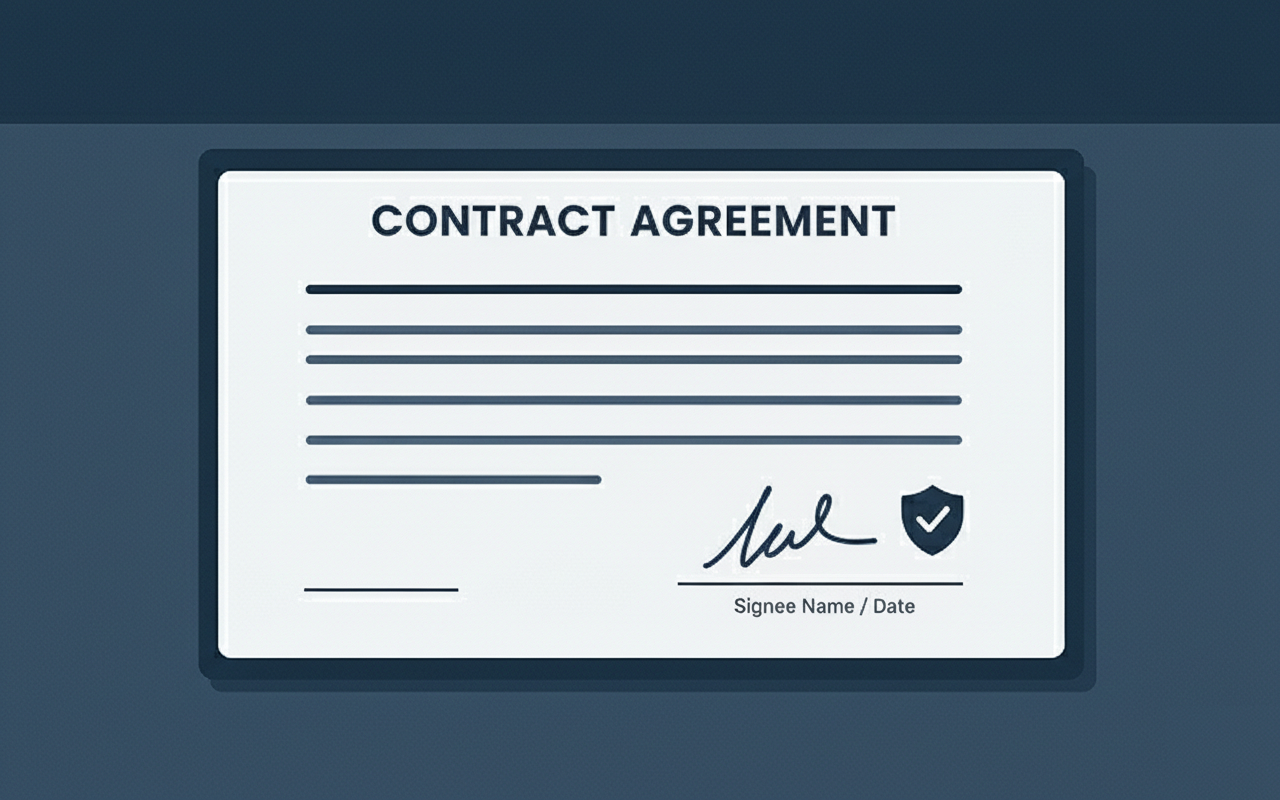
Best E-Signature Solutions for Property Lawyers
Best E-Signature Solutions for Property Lawyers
E-signatures are now a vital part of property law in the UK, especially for conveyancing and high-value property transactions. Choosing the right platform is critical due to legal requirements like the Electronic Communications Act 2000, eIDAS standards, and strict AML regulations. The best solutions prioritise security, compliance, and fraud prevention while integrating smoothly with legal workflows. Here’s a quick breakdown of the top options:
- Veyco: Tailored for property law, offering AML checks, fraud prevention, and mobile-friendly design.
- DocuSign: Globally recognised, with strong integrations and audit trails but lacks property-specific AML tools.
- Adobe Sign: Works well within the Adobe ecosystem, meets UK legal standards, and includes tamper-evident seals.
- SignNow: Affordable and user-friendly, suitable for simpler transactions, but less robust for fraud prevention.
Quick Comparison
For property lawyers, Veyco is the best choice for compliance and fraud prevention. DocuSign is ideal for firms needing software integration, while Adobe Sign suits those already using Adobe tools. Smaller firms may find SignNow a practical option for straightforward transactions.
Electronic Signatures for Deeds including HMLR requirements
1. Veyco
Veyco is a platform designed to combine e-signature functionality with fraud prevention and compliance, tailored to meet the demands of property transactions.
Legal Compliance
Veyco aligns with UK legal standards, ensuring its e-signatures hold the necessary legal validity for property transactions. This adherence to regulations gives property lawyers peace of mind, knowing their digital dealings are both secure and legally binding.
Anti-Fraud Features
"Veyco is officially live. This is the next step in protecting property transactions: faster, safer, and built with fraud protection and compliance at the core."
Fraud prevention is a cornerstone of Veyco's platform. Its advanced verification processes go beyond basic identity checks, offering robust protection against even the most sophisticated fraud attempts.
AML Screening
The platform includes anti-money laundering (AML) screening tools, enabling property lawyers to fulfil their AML obligations with ease. Source of funds checks are integrated into the process, ensuring transactions are verified quickly without slowing down the pace of property deals. This efficiency is crucial in competitive markets and ensures compliance doesn’t disrupt legal workflows.
Integration with Legal Workflows
Veyco fits seamlessly into existing legal workflows, allowing firms to onboard clients swiftly without compromising on security. Its mobile-friendly design means clients can complete verification and signing tasks from any device, eliminating delays caused by the need for in-person meetings or desktop access. This flexibility is a game-changer in the fast-moving world of property transactions.
Data Security
The platform employs bank-grade encryption to safeguard all processed data, ensuring sensitive information remains confidential. Veyco’s data handling protocols meet the rigorous standards expected in property law, where privacy is non-negotiable. Additionally, real-person support is available to assist lawyers with technical issues, minimising delays in high-stakes transactions. These features collectively highlight Veyco’s dedication to secure and efficient property dealings.
2. DocuSign

DocuSign provides property lawyers with a trusted, globally recognised platform for handling digital document execution, known for its dependability in legal transactions.
Legal Compliance
DocuSign ensures its platform aligns with legal standards, particularly under the eIDAS Regulation, offering legally binding signatures backed by detailed audit trails. Lawyers can choose between Simple and Advanced Electronic Signatures, tailoring security levels to the complexity of each transaction.
This adherence to compliance ensures property contracts meet UK legal requirements with confidence.
Anti-Fraud Features
DocuSign goes beyond compliance by incorporating strong fraud prevention measures. Multi-factor authentication and tamper-evident technology safeguard documents from unauthorised alterations.
If a signed document is tampered with, DocuSign immediately flags the change and invalidates the signature, protecting property lawyers against fraud risks and ensuring transaction integrity.
Integration with Legal Workflows
The platform seamlessly integrates with popular legal practice management systems like PracticePanther, Clio, and MyCase. This allows property lawyers to send documents for signature directly from their existing workflows, eliminating the need to juggle multiple platforms.
DocuSign also supports bulk sending and customisable templates, simplifying the management of high-volume transactions.
Data Security
Security is a top priority for DocuSign. The platform employs 256-bit SSL and AES 256-bit encryption, maintains SOC 2 Type II certification, and undergoes regular audits. It also boasts 99.99% uptime, detailed audit logs, and role-based access controls.
All signed documents are stored securely in DocuSign's cloud infrastructure with automatic backups across multiple data centres. Role-based access controls further enhance security by limiting document access to authorised team members, ensuring sensitive property information remains confidential.
These robust measures make DocuSign a reliable choice for safeguarding high-value property transactions.
3. Adobe Sign

Adobe Sign provides a reliable e-signature solution tailored to handle the complexities of UK property transactions.
Legal Compliance
Adobe Sign aligns with strict UK legal standards, supporting Qualified Electronic Signatures (QES) as well as simple and regulated signatures. These options meet the requirements set by HM Land Registry (HMLR), which accepts both "conveyancer-certified electronic signatures" and "simple electronic signatures" under certain conditions. For example, documents must be securely stored within the signature platform, and proper dating protocols must be followed. With tamper-evident seals and a secure infrastructure, Adobe Sign ensures these criteria are met.
Anti-Fraud Measures
To safeguard against fraud, Adobe Sign incorporates tamper-evident seals. These seals help detect any unauthorised changes, offering protection for both lawyers and their clients.
Seamless Integration with Legal Processes
Adobe Sign integrates smoothly with legal practice management systems, making it easier to incorporate e-signatures into existing workflows. It offers features specifically designed for legal use, such as the ability to include signing reasons, request consent for electronic transactions, and even allow signers to provide handwritten signatures when necessary. These capabilities are backed by strong security protocols.
Data Protection
When it comes to safeguarding sensitive property information, Adobe Sign employs enterprise-level security. This includes comprehensive audit trails and secure, restricted storage to ensure data remains protected at all times.
4. SignNow

SignNow simplifies property transactions in the UK by offering secure and automated workflows that help keep everything running smoothly.
When comparing e-signature platforms, SignNow stands out by striking a balance between compliance, fraud prevention, workflow integration, and data security.
Legal Compliance
SignNow is designed with UK regulations in mind, ensuring that digital signatures are legally valid while keeping the process straightforward and user-friendly.
Anti-Fraud Features
To guard against unauthorised activities, SignNow uses multiple layers of authentication and provides detailed audit trails. These features give property lawyers extra confidence when handling sensitive, high-value transactions. This strong security setup works seamlessly with the platform's integration features.
Integration with Legal Workflows
Thanks to its robust API and ready-to-use templates, SignNow makes it easy to initiate and manage signature requests for documents like purchase agreements and leases.
Data Security
SignNow uses advanced encryption to protect data both in transit and at rest. By utilising secure cloud storage with controlled access, it ensures confidentiality and complies with legal retention standards.
Comparison of Features and Drawbacks
When assessing e-signature platforms, it's essential to weigh their core capabilities against compliance requirements. The following table highlights key differences, helping to determine which solution aligns best with the needs of high-value property transactions.
Veyco stands out as a solution tailored specifically for the UK property market. It combines qualified e-signatures with AML (Anti-Money Laundering) screening and source of funds verification. This integrated approach simplifies everything from client checks to contract finalisation. With bank-grade encryption and a mobile-friendly design, Veyco is particularly suited for time-sensitive property deals.
DocuSign is recognised for its enterprise-grade features and extensive third-party integrations. These integrations make it versatile for a wide range of legal applications. However, it lacks the property-focused fraud prevention and AML tools that UK property law firms might prioritise.
Adobe Sign leverages its place within the Adobe ecosystem to offer seamless document editing and signing workflows. Its strong authentication measures and detailed audit trails ensure compliance with legal standards, making it a solid choice for property transactions.
SignNow strikes a balance between functionality and affordability. Its simple integration options and user-friendly templates work well for standard property documents. While it includes layered authentication and audit trails for secure transactions, it may not provide the advanced fraud prevention and verification tools needed for more complex scenarios.
FeatureVeycoDocuSignAdobe SignSignNowLegal ComplianceDesigned for property transactionsMeets global compliance standardsEnsures legal validityBasic compliance featuresAnti-Fraud FeaturesIdentity verification and AML checksStandard authentication measuresMulti-layer security protocolsStandard securityAML ScreeningBuilt-in AML and funds verificationNot includedNot includedNot includedLegal Workflow IntegrationCustomised for property workflowsExtensive API integrationsIntegrates into Adobe ecosystemSimple templates and API optionsData SecurityBank-grade encryptionEnterprise-level securityRobust security frameworkStandard encryption
This comparison highlights the strengths and limitations of each platform, helping users choose the best fit for their specific property transaction needs.
Final Recommendations
Choosing the right e-signature solution hinges on your firm's specific needs and the complexity of its transactions. Each platform offers features tailored to different aspects of legal work, so it's essential to align your choice with your firm's goals.
For property-focused transactions, Veyco stands out with its qualified e-signatures, identity verification, AML screening, and source of funds checks. Its bank-grade encryption and mobile-friendly design ensure secure and efficient handling of high-value property deals.
For firms prioritising integration, DocuSign is a strong contender due to its seamless compatibility with legal software. However, it may lack some of the property-specific compliance features required for certain transactions.
For practices already using Adobe tools, Adobe Sign is a reliable option. It integrates smoothly within Adobe's ecosystem, offering secure authentication methods and detailed audit trails - ideal for managing straightforward documents with ease.
For smaller practices needing essential features, SignNow provides an accessible and user-friendly option. Its straightforward e-signature tools and standard security measures make it a practical choice for simpler transactions.
As UK property law continues to evolve, platforms offering advanced identity verification and AML checks are becoming increasingly valuable. For property lawyers, balancing robust security features with integration capabilities is key to selecting the most suitable solution for your practice.
Latest Articles
